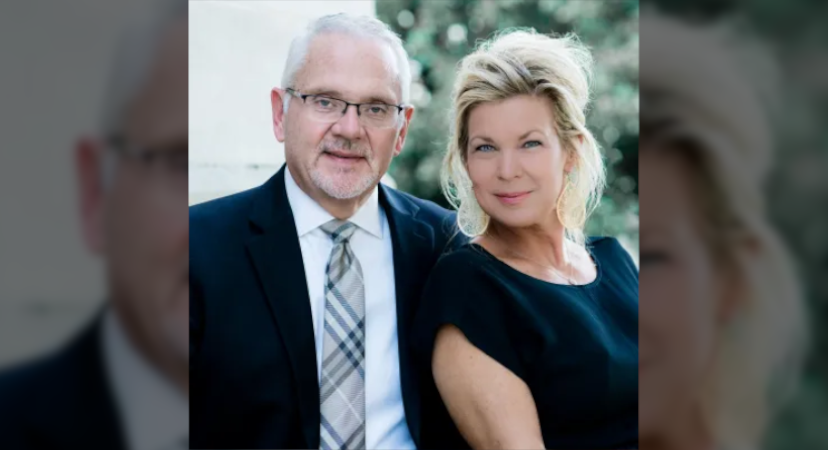Curiosity Killed the Catalyst
Most everyone has heard the phrase, “Curiosity killed the cat.” this is an old idiom, or proverb to warn of the dangers of unnecessary investigation or experimentation. The earliest printed reference of this original idiom is attributed to the British playwright, Ben Johnson. Ben’s play, every man in his humor, was written in 1598, and was performed by the lord chamberlain’s men, and the legendary William Shakespeare.
But, while this is a blog, and not a play, I want to make a play on the words of this famous proverb. I am really not too worried about curiosity killing the cat, but I am gravely concerned about curiosity killing the catalyst.
A catalyst is an agent that provokes or speeds significant change or action. It is the propulsion to cause something to expand or explode.
When man was created, the creator had carefully coordinated a catalyst of the cosmic kind. With unlimited potential, in a palatial paradise, Adam and Eve had heaven on earth. Along with fruit trees galore, and more pets than you can imagine, these love-birds joined with all creation worshipping the majesty of their maker. They had the love of god and the love of each other and a chance to live forever. They also had unlimited fruit…Well, almost unlimited. Because the creator wanted his creation to love him by choice, he put one “Thou shalt not” tree somewhere in the middle of hundreds of “Thou shalt” trees. It was one little bitty boundary that would border the chasm between the will of man and the will of god.
In time, Eve stopped enjoying all the blessings that she was licensed to love, and became curious about this beautiful boundary. As she lusted after this delicious looking delicacy, she began to talk to herself. While curiosity spoke louder than her conscience, she asked herself, “If god made it, shouldn’t I enjoy it? It looks good, so it must taste good, and if it tastes good, it can’t be that bad.” then as she continued to converse with herself, a serpent spoke out of the bush and joined the conversation. He began his dialogue with a question, and appeared to have the correct answer.
Next, the talking snake convinced her to go against her convictions, and indulge in her curiosity. Surely she had misunderstood what god said. As she chose to chew this forbidden fruit, she did not fall over dead, but she began the process of dying, both physically and spiritually. Yes, curiosity killed the catalyst. As she quickly reflected the inquisitive conversation with the scoundrel that was now laughing in her face, she realized that he had told her a partial truth. Her eyes were open, but she did not like what she saw…And felt…And would feel. The chance to live forever was capsized by calories that would open her eyes and close her longevity.
Now looking through the lens of life differently, she ran to her husband with a piece of fruit that had taken her peace of mind. I have no idea why Adam listened to the voice of Eve, when he had distinctly heard the voice of god. But, with the bible recording no hesitation, Adam ate of the fruit of his wife’s failure. Thus the fall of woman. The fall of man. The fall of all mankind. This fruit, this fall, this failure would not only change their future, it changed all of ours.
Curiosity killing the catalyst brought a curse from the creator. Although he did not curse Adam and Eve, he cursed everything around them. Sweat, thorns, and birth pains were just a small sample of the sorrow their sin had sown. Their surroundings changed quickly. With catastrophic, catapulting, consequences god escorted them out of paradise, and placed guards around the garden to prohibit them from ever going back. They had crossed the only boundary that god had set up. As they made their exit, I am sure that Eve had to notice that the serpent that she conversed with in a tree was now crawling on the ground. He followed them out of the garden and would harass them until they died the death that he promised they would not die.
Living now outside of the garden and outside of the will of god, adam and Eve had to accept the new norm. As god said, there was sweat and thorns, as Adam now had to do what god had done for him previously. He left a garden that god had planted and now had to plant his own. From the sweat of his brow he had to work for the food for his family. Yes, family. Adam and Eve moved on and continued to love each other, even though it was different now. As weird as it was, Eve began to gain a little weight and felt something moving in her stomach. Discomfort began to set in and she kept getting bigger. Then after nine months of this unexplained weight gain and discomfort, Eve began to scream in pain. As she birthed this baby, the pain was named Cain. At this point Eve had no doubt about what god meant when he issued the curse that would follow her for the rest of her life. But interestingly after the pain, she made a startling confession. She said, I have gotten me a man from the lord. She acknowledged the curse that he had said, but suddenly remembered who he was and called him lord. As all of us with children know, kids can help you forget your mistakes and think about your miracles.
It wasn’t long until Adam and Eve were able to give Cain a brother that they would call Abel.
Cain and Abel became the kids that suddenly became their new catalyst. They centered their lives around their sons, and they adjusted to this life that wasn’t god’s will, but would still fulfill his plan. Eden had become a distant memory to Adam and Eve and a story that they were forced to tell their sons. Knowing that they could never go back to what could have been, and what should have been, they knew that nothing could change what had happened.
But then, Adam and Eve received news of another killing. Cain killed his brother Abel. The debilitating, downward spiral of disobedience brought the death, the devil said would never happen. Curiosity killed the catalyst and Cain killed his brother.
Sadly, society after society has repeated this behavior of breaking god’s boundaries. Instead of learning lessons from the mistakes of others, and gleaning from their gloom, curiosity is still the cause of catalysts being killed. From the tower of babel to almost every book in the bible is another verse of this age old problem. But like Adam and Eve, none of us can do anything about the past. What you and I have to decide is, will we repeat this trend or will we let it end with us? You and I have a chance to charter a new course and change the order of this weaved web of disobedience. I have decided that when I am curious about something, I won’t be like Eve. I am going to stay busy enjoying the things that god has assigned for my pleasure, and stay clear of the boundary that has been established as my choice to serve only him. I refuse to let curiosity kill the catalyst!


